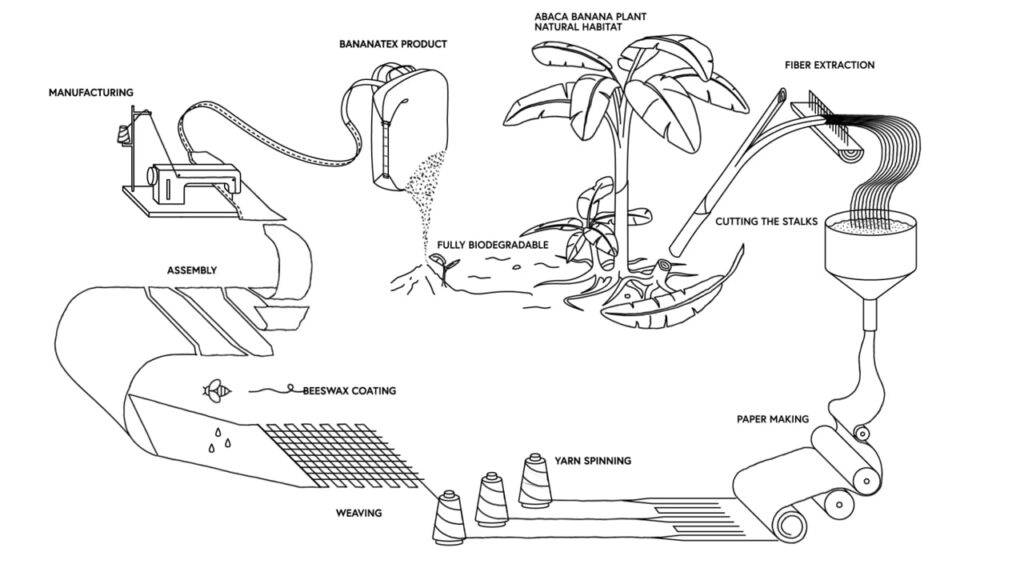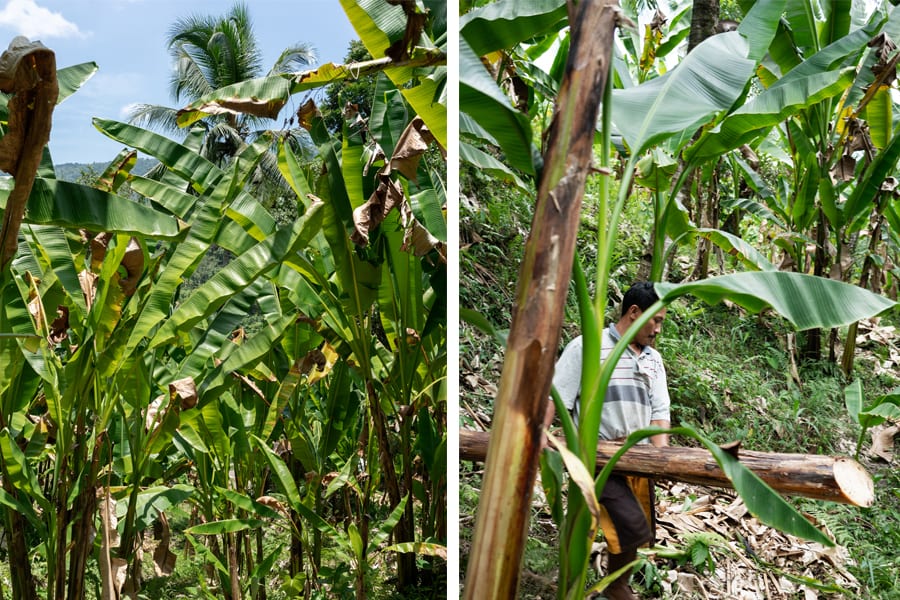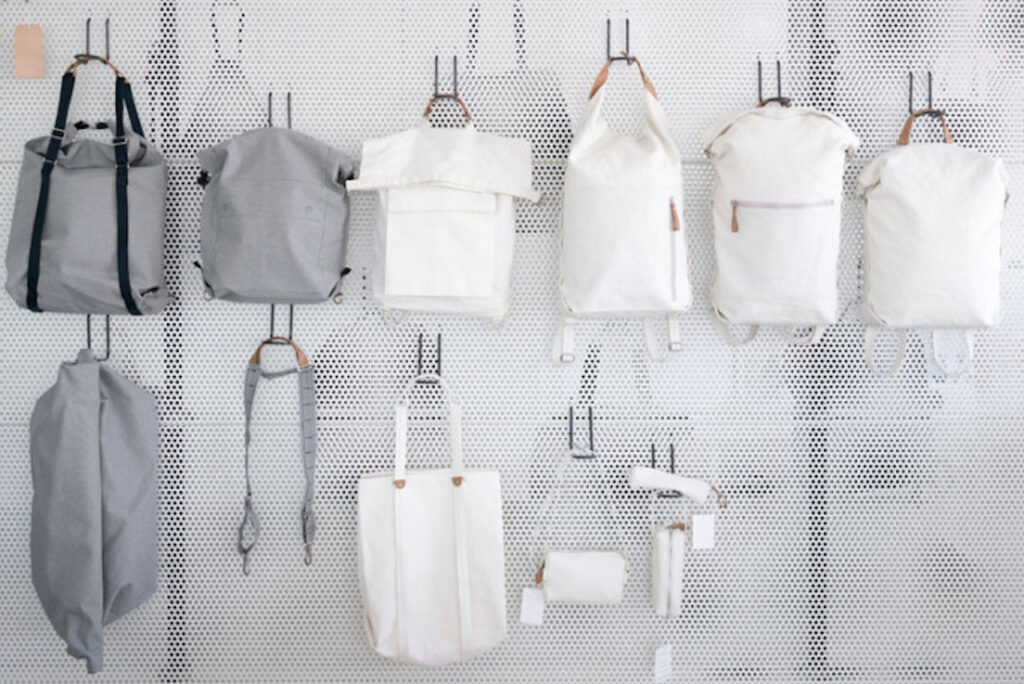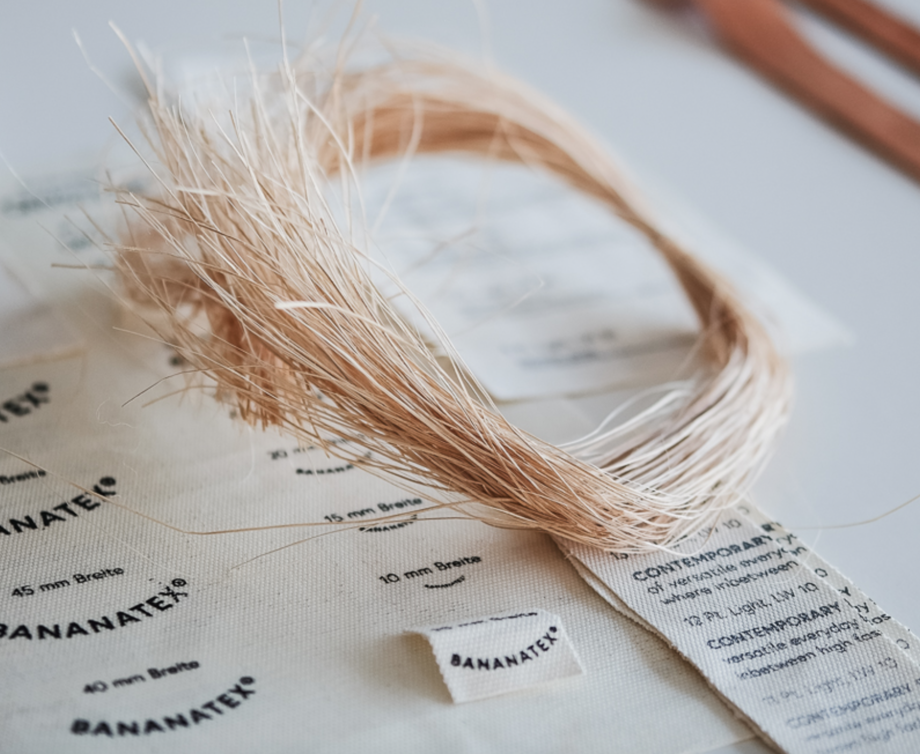From fruit to clothing fabrics, is it really possible? The answer is yes, thanks to some recent innovations in the textile sector, which are estimated to be responsible for around 20% of global pollution.
We had already talked about DESSERTO, the vegan cactus skin produced in Mexico and used by some brands (such as the Italian Roberto di Stefano) to make bags and accessories. Like DESSERTO, there are numerous other materials obtained from vegetables and fruit and vegetable waste.
Bananatex, the fiber extracted from Abacá
We introduce Bananatex, the world’s first durable, waterproof and compostable fabric made exclusively from Abacá banana plants, also called “Manila hemp”. Abacá is a plant from the banana family that produces fiber instead of fruit. Banana trees of the Abacá variety grow in organic forestry. The plants are grown in the Philippine Islands, in the province of Catanduanes and do not require chemical treatments such as pesticides or fertilizers.

In one year, a banana tree can offset the CO2 emissions of production and transport of more than 10 bags.
The part of the plant used to make the fabric are the stems, which regenerate completely within one year of harvest. The self-sufficiency of this plant has made it important for the reforestation of areas once eroded by palm plantations.

Fibers remain to dry for a few days before being harvested. Once the fibers have been transformed into yarn at a paper mill in Taipei, Taiwan, the fabric is applied with low environmental impact finishing treatments for a longer life. These include the Ruco®-Dry Eco Plus water-repellent treatment (for the surface) and the waterproof natural wax coating (on the back). In addition, the yarn dyeing method applied is Oeko-Tex® Standard 100 certified.
The QWSTION brand, bags and pouches in Bananatex
Bananatex fabric was invented, after three years of research, by Sebastian Kruit, Christian Kaegi, Fabrice Aeberhard, Matthias Graf and Hannes Schoenegger, designers and engineers who in 2008 founded “QWSTION“, a brand of backpacks and bags for everyday life. . The brand’s approach is aimed at creating sustainable solutions that draw on the tradition of Swiss modernist design and are functional for everyday life. Already in 2013 the “QWSTION” collections were made of organic cotton and vegan leather.
All products are prototyped in the “QWSTION” atelier in Zurich. Production takes place in Europe and China, in the city of Huizhou, where a small family-run factory is located, controlled by the BSCI (Business and Social Compliance Initiative) with which the brand has been collaborating since 2010. The factory, managed by spouses Wan and Lai , has been working in the production of bags for over 30 years.

Bananatex is not patented, but rather it is a completely open source project, because the founders would like to encourage other brands to use this fabric.
Qwstion’s Bananatex collection includes bags and backpacks of various sizes, but also fanny packs. There is Roll Pack, a rollable and versatile backpack that can adapt to its contents thanks to a flexible roll top closure. Then there is the Hip Pouch, a pouch with adjustable carrying options to carry the essentials with you. Among the latest arrivals, the Flap Tote Collection and the Minimal Collection. Also recent is the Mae chair, created in collaboration with the German design studio PALAIUS.





